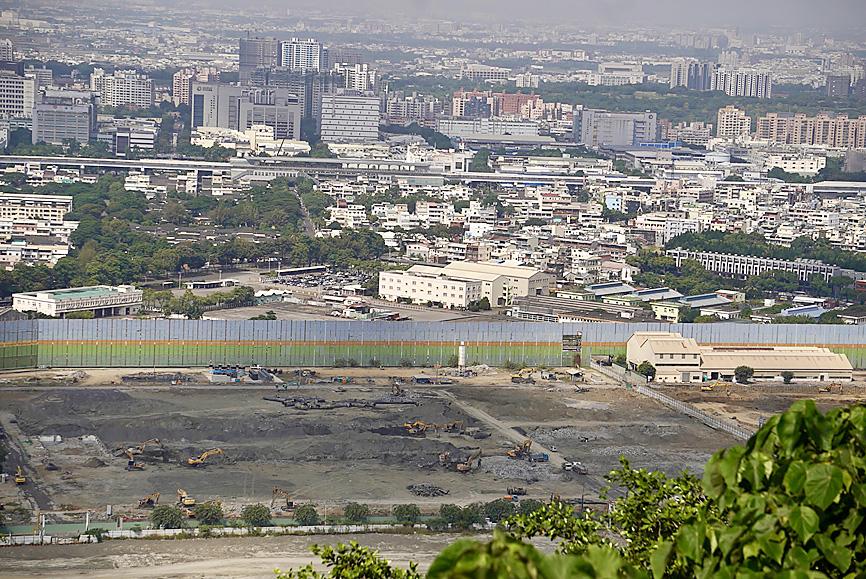A plan by Taiwan Semiconductor Manufacturing Co (TSMC, 台積電) to build a fab in Japan in a joint venture with a subsidiary of Sony Group Corp aims to reinforce ties with the Japanese firm, an industry expert said.
The plan differs from TSMC’s investments in China and the US, in which the chipmaker holds the entire stake, said Ray Yang (楊瑞臨), a supervisor at the Industrial Technology Research Institute’s (工業技術研究院) Industrial Economics and Knowledge Center.
TSMC’s wholly owned investments have prioritized proximity to its clients in the US and China, Yang said during an interview with the Central News Agency.

Photo: CNA
“This time, TSMC has changed course to set up a joint venture with Sony’s wholly owned subsidiary,” Yang said. “I think the chipmaker wants closer cooperation with its Japanese partner in specialty process development, as Sony is a leading contact image sensor supplier in the world.”
TSMC on Wednesday said that it would invest up to US$2.12 billion in the joint venture, called Japan Advanced Semiconductor Manufacturing Inc (JASM), making it the majority shareholder. Sony Semiconductor Solutions Corp, a wholly owned subsidiary of Sony, is to invest US$500 million. The factory is to be built in Kumamoto Prefecture.
Construction of the factory is set to begin next year and production is expected to begin in 2024. The planned fab would make 12-inch wafers using 22-nanometer and 28-nanometer technology, with a monthly capacity of 45,000 wafers, TSMC said.
Wholly owned factories allow TSMC to protect its intellectual property, Yang said, adding that the joint venture in Japan is expected to help the firm work closely with Sony, as well as the Japanese government and academia.
“I think JASM will play a critical role in Japan’s semiconductor industry,” he said.
Also on Wednesday, TSMC said it would build a new plant in Kaohsiung to focus on 7-nanometer and 28-nanometer chips. Construction of the plant is scheduled to begin next year and mass production is expected to start in 2024.
While TSMC did not disclose the financial terms for the Kaohsiung plant, its board approved a capital budget of about US$9.04 billion.
The plant would help TSMC diversify water supply risks amid worries about a long-term water shortage in Taiwan, said Arisa Liu (劉佩真), an economist with the Taiwan Institute of Economic Research (台灣經濟研究院).
TSMC has wafer plants in Hsinchu City, Taichung and Tainan.
The Kaohsiung City Government said it would start building two water recycling plants in 2023 to supply about 30,000 tonnes of water per day to TSMC.
The wafer plant is not expected to compete with households for water supply, the city government said.
Kaohsiung Mayor Chen Chi-mai (陳其邁) said the city is preparing a plot that used to house a CPC Corp, Taiwan (台灣中油) naphtha cracker for the new wafer plant.
The plot is expected to be ready for construction in the middle of next year, Chen said.
The investment would enable the city to build a semiconductor industry cluster, which would help the nation to narrow the north-south development gap, he added.

WEAKER ACTIVITY: The sharpest deterioration was seen in the electronics and optical components sector, with the production index falling 13.2 points to 44.5 Taiwan’s manufacturing sector last month contracted for a second consecutive month, with the purchasing managers’ index (PMI) slipping to 48, reflecting ongoing caution over trade uncertainties, the Chung-Hua Institution for Economic Research (CIER, 中華經濟研究院) said yesterday. The decline reflects growing caution among companies amid uncertainty surrounding US tariffs, semiconductor duties and automotive import levies, and it is also likely linked to fading front-loading activity, CIER president Lien Hsien-ming (連賢明) said. “Some clients have started shifting orders to Southeast Asian countries where tariff regimes are already clear,” Lien told a news conference. Firms across the supply chain are also lowering stock levels to mitigate

IN THE AIR: While most companies said they were committed to North American operations, some added that production and costs would depend on the outcome of a US trade probe Leading local contract electronics makers Wistron Corp (緯創), Quanta Computer Inc (廣達), Inventec Corp (英業達) and Compal Electronics Inc (仁寶) are to maintain their North American expansion plans, despite Washington’s 20 percent tariff on Taiwanese goods. Wistron said it has long maintained a presence in the US, while distributing production across Taiwan, North America, Southeast Asia and Europe. The company is in talks with customers to align capacity with their site preferences, a company official told the Taipei Times by telephone on Friday. The company is still in talks with clients over who would bear the tariff costs, with the outcome pending further

Six Taiwanese companies, including contract chipmaker Taiwan Semiconductor Manufacturing Co (TSMC, 台積電), made the 2025 Fortune Global 500 list of the world’s largest firms by revenue. In a report published by New York-based Fortune magazine on Tuesday, Hon Hai Precision Industry Co (鴻海精密), also known as Foxconn Technology Group (富士康科技集團), ranked highest among Taiwanese firms, placing 28th with revenue of US$213.69 billion. Up 60 spots from last year, TSMC rose to No. 126 with US$90.16 billion in revenue, followed by Quanta Computer Inc (廣達) at 348th, Pegatron Corp (和碩) at 461st, CPC Corp, Taiwan (台灣中油) at 494th and Wistron Corp (緯創) at

NEGOTIATIONS: Semiconductors play an outsized role in Taiwan’s industrial and economic development and are a major driver of the Taiwan-US trade imbalance With US President Donald Trump threatening to impose tariffs on semiconductors, Taiwan is expected to face a significant challenge, as information and communications technology (ICT) products account for more than 70 percent of its exports to the US, Chung-Hua Institution for Economic Research (CIER, 中華經濟研究院) president Lien Hsien-ming (連賢明) said on Friday. Compared with other countries, semiconductors play a disproportionately large role in Taiwan’s industrial and economic development, Lien said. As the sixth-largest contributor to the US trade deficit, Taiwan recorded a US$73.9 billion trade surplus with the US last year — up from US$47.8 billion in 2023 — driven by strong